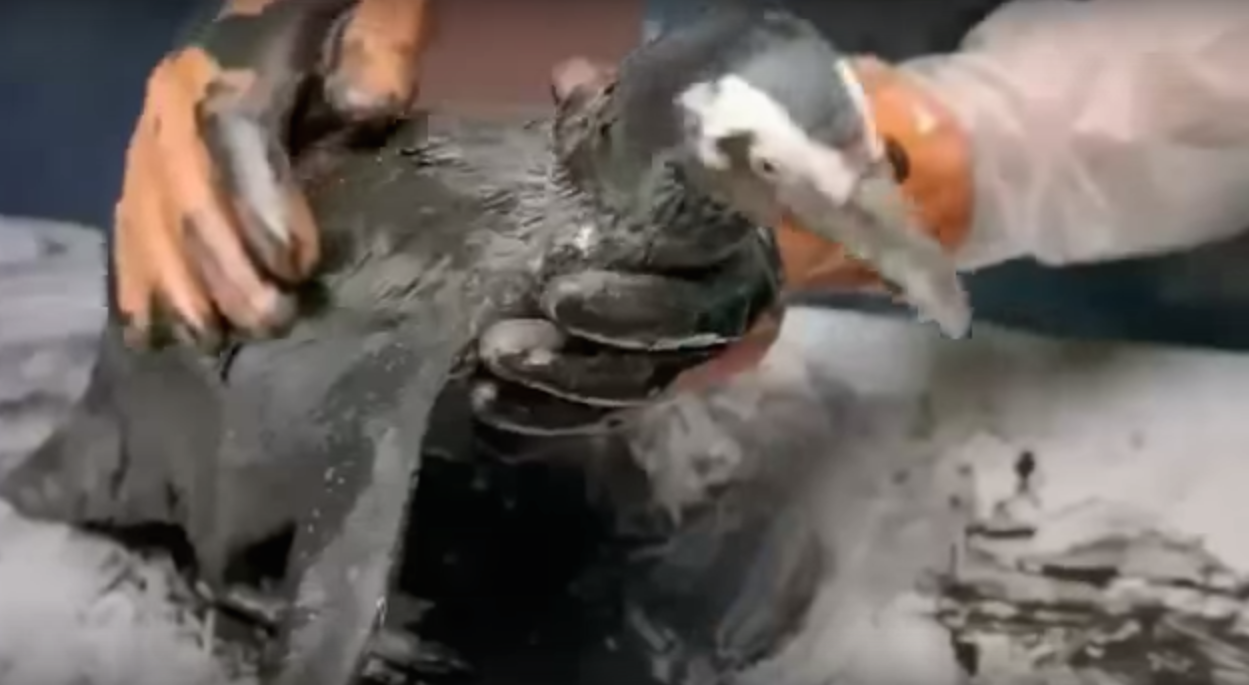
Tragedy in the Gulf: Oil Spill off the Louisiana Coast.
“When did the simple concept of leaving the planet a better place for our kids become a partisan issue?” ~ Unknown
It’s tragic when an oil spill doesn’t stir much media attention simply because 2,100 barrels of oil leaked into the ocean instead of the three million we witnessed during the Deepwater Horizon spill of 2010.
We have become desensitized to violence as well as environmental matters.
Any time there is an oil spill it devastates the environment, contaminates the ecology and food chain of an area and also kills wildlife.
On May 12, 2016 an oil slick two miles wide by 13 miles long could be seen off of the coast of Louisiana.
Approximately 88,000 gallons were released from the Shell’s Glider Field which is near the Brutus Platform. Shell representative, Curtis Smith, stated that there is no drilling going on at this platform and that the leak is now isolated and contained.
Authorities say that the official cause of the spill is still under investigation but that regulations have been tightened since the B.P. Deepwater disaster, that was the worst of its kind in U.S. history.
Yet, regardless of how contained or small an oil spill is, it still affects local wildlife, specifically sea birds that float atop the water and then wind up covered in the thick crude oil left unable to fly or feed normally.
Since the catastrophic San Francisco oil spill, International Bird Rescue Center has been traveling to locations all over the world to respond to the dire situation of sea birds in oil spill affected areas. The IBRC started out of necessity to care for the 7,000 birds that were picked up from this disastrous spill off the California coast in 1971—but of those birds rescued, only 300 survived.
In the beginning no one really knew how to care for the birds that were covered in the oil residue of these spills. It was a trial and error experience as volunteers had to do something to try and save these creatures who had no other hope at surviving.
During the first rescue mission in 1971 cornmeal and gasoline were among the solvents that were used in an attempt to wash the birds feathers clean enough so that they would be able to be released into the wild, yet the fumes proved to be detrimental not only to the wildlife but to the rescue workers as well.
At one point a “bird washing machine” was created, yet because birds come in all shapes and sizes, it wasn’t proven effective at the tough job of removing crude oil from the delicate feathers and eyes of birds.
It wasn’t until the mid-80s that someone suggested to Alice Berkner, founder of the IBRC, to use a detergent. Berkner bought several different kinds of over the counter detergents and using bird feathers and deceased birds, she experimented with which detergent worked the best to remove the grease associated with crude oil.
Of all the detergents, Dawn worked the best. It was gentle enough to use even if it got in the bird’s eyes and it was strong enough to to wash the oil off the bird’s feathers, without causing further injury. Another attribute of this product is Dawn is readily available in local stores, wherever an oil spill takes place.
After this discovery, Dawn launched its Dawn Saves Wildlife Campaign which has donated more than $4 million dollars to its wildlife partners like IBRC since 2006.
Dawn also donated more than 7,000 bottles of dish liquid when we were in the throes of the Deepwater Horizon disaster in 2010, although some questioned the safety and practice of using a petroleum based detergent to wash birds covered in oil.
Critic Ben Busby-Collins who is the founder of Ballard Organics Soap Co. states that because Dawn is a petroleum based product we are essentially fighting oil with oil. He goes on to explain that “If we’re trying to reduce our demand for oil and you’re using a petroleum based product, it’s creating more demand.”
Martin Wolfe from Seventh Generation Organics says “Here we are trying to squeeze every last drop of oil we can expel out of the Earth, and it’s despoiling the Earth. And we’re using that same product that’s messing up the Earth to clean it up.”
Yet, according to IBRC, there isn’t another option when it comes to removing the oil from the feathers of birds like ducks and pelicans which are the most commonly affected by a spill.
Although there is still debate about the environmental and social impact of using petroleum based product to remove oil from the wildlife that is affected by an oil spill, at this point it seems to still be the best option.
Ideally, we will discover a more environmentally friendly product that is plant based that will as effectively clean the oil off of sea birds, as we do now with Dawn, but with the choice between life and death there is no question that Dawn truly is saving lives.
~
Author: Kate Rose
Editor: Ashleigh Hitchcock
Photo: Youtube











Read 0 comments and reply